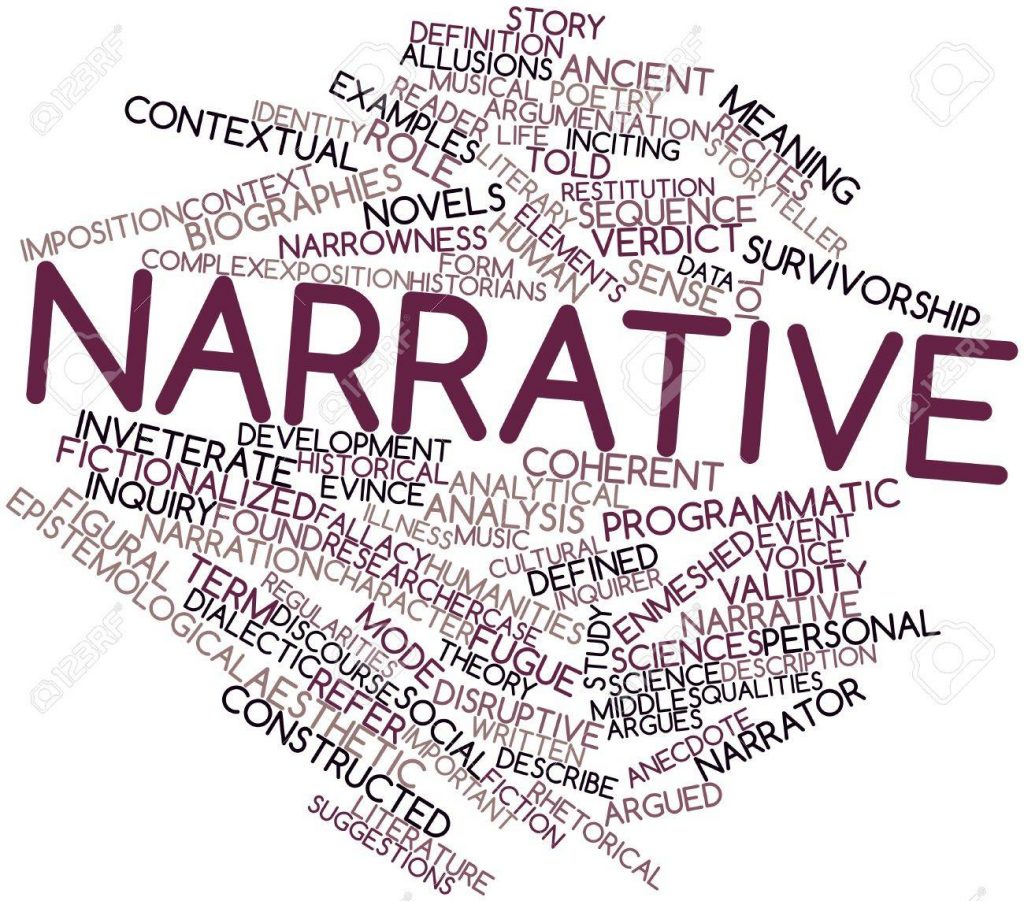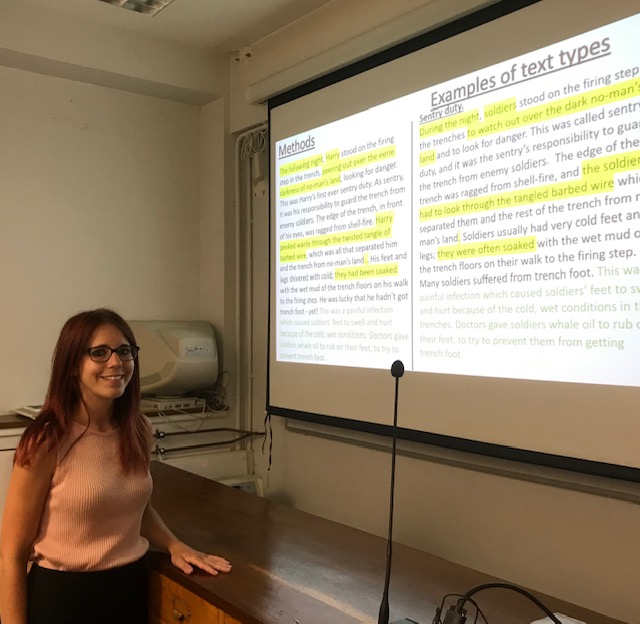Emma Browning, from the School of Education, Communication and Society at King’s College, presented a fascinating seminar evaluating whether narrative structure might help with the teaching of non-fiction content to primary age children.
She explained how narrative is seen as fundamental to human thought, yet in the Key Stage 2 classroom, is mainly associated with reading for enjoyment. By contrast, non-fiction is commonly used to support learning in content-based subjects, such as history.
If narrative plays a powerful role for children, it might be harnessed as a tool to support learning.
Emma presented the results of an intervention study with 9-10 year olds, with a sequence of three lessons teaching a history topic (World War 1). One group was presented the content in a narrative format (with a protagonist, a sequence of specific events, and a writing style to encourage engagement), while a second group was presented the content in a conventional factual format. She then assessed the children for their development of understanding of the topic after the lessons, as well as retention of information 3 weeks later. The narrative presentation of content supported a greater degree of comprehension, both in tests of chronological and causal links between information. There was also evidence for enhanced long-term retention.
Notably, while the narrative presentation of non-fiction information induced greater enjoyment in the children, degree of enjoyment did not reliably predict learning outcomes. This suggests that engagement was not the key driver of the narrative effect, rather it was likely due to deeper processing and active construction of meaning during comprehension. Emma presented samples of children’s discourse to support this view.
In the subsequent discussion, Emma considered how to ensure that narrative presentation encouraged the children to learn the information in the best format for future flexible use, rather than as simply a story about someone. Examples of children’s discourse around the learning showed how carefully even 9 and 10 year olds consider the reliability of information.
Emma Browning is currently completing her PhD, and is also a Year 5 primary school teacher.


